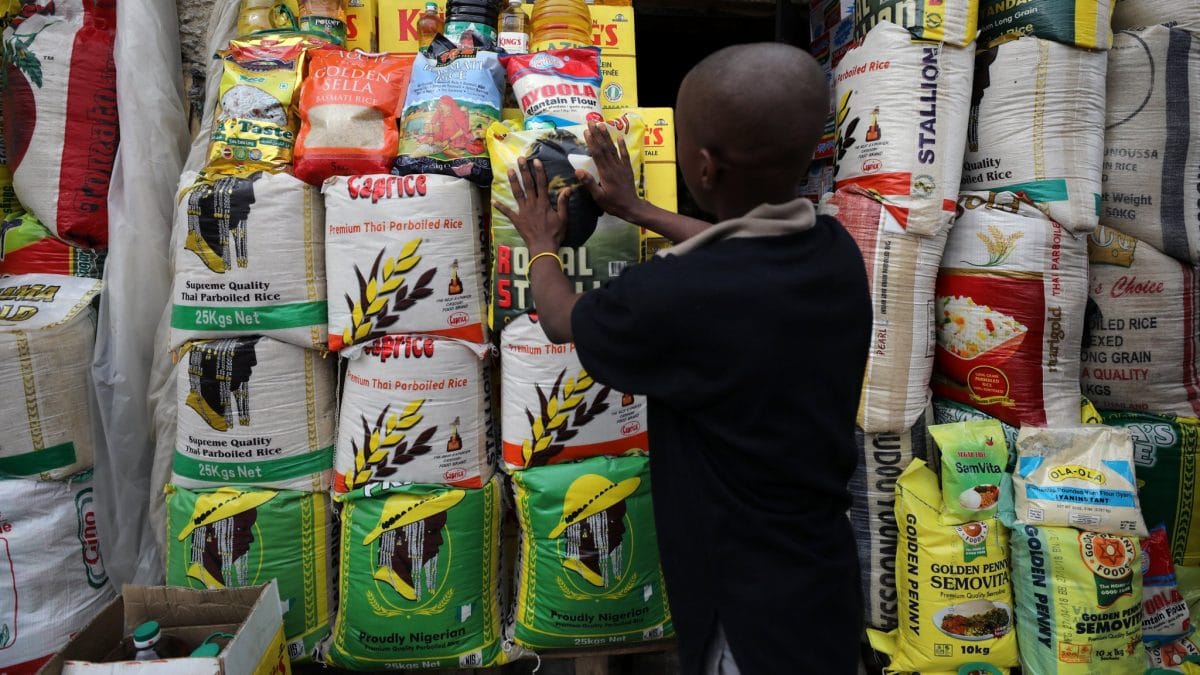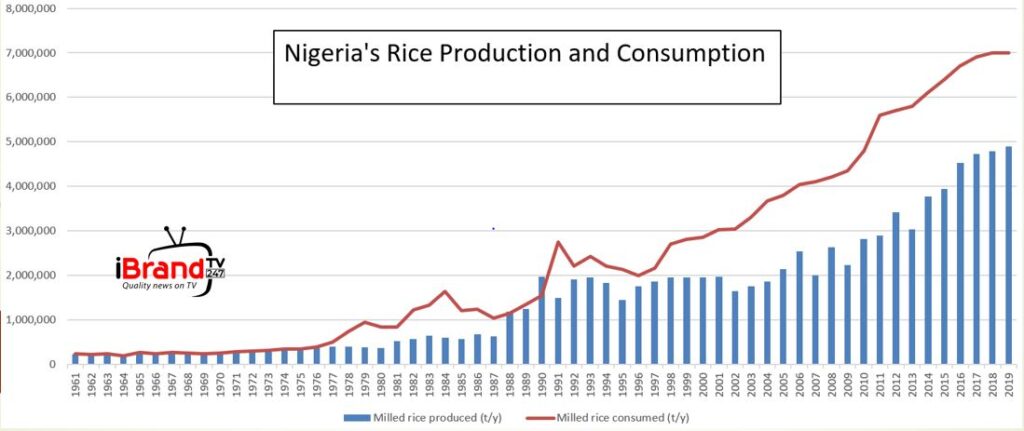 The patronage of local rice has continued to increase as the price of foreign rice soars further in major markets across the country.
The patronage of local rice has continued to increase as the price of foreign rice soars further in major markets across the country.
iBrandTV market survey conducted across various markets in the country on Saturday showed that residents are moving away from patronising foreign rice to local rice.
This gives further indications of positivity in the move made by President Muhammadu Buhari last year.
Recall that, in a bid to supplement about 62 per cent deficit of rice availability in Nigeria, the Federal Government of Nigeria resorted to massive importation of rice, as more than 540 000 tonnes of rice were imported in 1983 alone.
Nigeria spends an average of US$1.65 billion, or N0.59trn each year on the importation of rice into the country.
In 2015, the Central Bank of Nigeria, CBN, had banned the use of its foreign exchange to pay for rice imports and has backed loans of at least N40 billion ($130 million) to help small-holders boost output. It also banned rice imports across land borders and placed a huge 70% tariffs on imports coming through ports.
In August 2019, the President went a step further and closed the nation’s land borders altogether to stamp out smuggling, often from neighbouring Benin, with rice being one of the main targets.
Market Survey
A survey at Ogbete Main Market in Enugu State shows that, a 50kg bag of local de-stoned rice goes for between N17,000 and N21,000 depending on their duration.
The non-de-stoned rice of 50kg goes for between N16,000 and N16,500 while its 25kg stands at N8,000.
A 4.5 litres painter of de-stoned goes for N2,000 while the non-de-stoned local rice remained at N1,700 per painter.
In most major markets, the survey revealed that the price of foreign rice has increased significantly.
In Aboju Market Lagos, a 50kg of foreign rice now sold for between N27,000 and N30,000 while its 25kg goes for N13,000.
Speaking to a rice dealer at Ogbete market, Mr Chuks Ibe, said that the increase in the price of foreign rice was due to the ban placed on the importation of foreign rice.
“Before this present government foreign rice was in abundance but usually costly only during festive periods.
“Because of the ban and the price increase, many people have started going for local rice,” Ibe said.
Another seller, Mr Julius Uzoh, a rice seller at New Market Onitsha, also attributed the increased patronage of local rice to its availability in the state.
According to Uzoh, the Adani Rice in Uzo-Uwani Local Government Area had flooded markets in the state and beyond leading to a reduction in prices of the product.
Mrs Lara Egbuna, a resident of Achara Layout, said that because of the high cost of foreign rice, she had switched to local rice, saying that the local rice was more affordable and nutritious.


